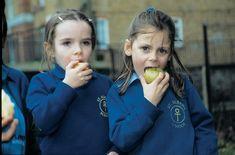
A report suggesting that price is becoming the biggest barrier in preventing a healthy, balanced diet as wallets rule over waistlines has inflamed trade associations this week.
The research from consumer group Which?, entitled Hungry For Change?, reported that around 28 million UK adults say that price has become more important when choosing foods since the financial downturn, angering the British Retail Consortium (BRC) and the Fresh Produce Consortium (FPC).
The report looks at the efforts of the UK government and the food industry to help consumers make healthier choices over the last five years.
Nearly three in five agreed that they would buy more fruit and vegetables if they were cheaper, and almost a quarter said that the economic crisis had made healthier eating less of a priority.
But the BRC has come out against the report, citing the Food Standards Agency’s (FSA) Low Income Diet and Nutrition Survey, in which research found no significant link between income and dietary patterns. That demonstrates that intense competition between UK retailers is making healthy food affordable for families of all incomes and education is the key to improving eating patterns.
The BRC also cited the increase in home cooking as customers buy more fresh ingredients and use retailers’ tips to improve their cooking skills.
BRC food policy director Andrew Opie said: “It’s nonsense to suggest price is a barrier to eating well. Which? is actually discouraging customers from exploring healthy eating choices by pushing the myth that fresh fruit and vegetables are expensive. Customers should look beyond scare headlines, get into supermarkets and see just how affordable good fresh food is.
“Fresh produce is the main focus of promotions as retailers battle it out to offer customers the best possible value."
Sue Davies, chief policy adviser for Which?, said: “People want to make healthier choices, but it’s not easy. As the credit crunch bites it’s important that government and industry aren’t distracted. They can’t be allowed to put the fight against obesity on hold.
“We want to see a dramatic increase in the pace of action in all areas, so barriers to healthy eating can be removed and people can at last put their good intentions into practise.”
Nigel Jenney, chief executive of the FPC, told freshinfo: “An ambitious programme is needed to tackle public health issues. The School Fruit and Vegetable Scheme is encouraging young children to form good eating habits. Since the introduction of the scheme in 2005 there has been a greater increase in consumption among 6-10-year-olds, the target age group of the scheme."
Jenney also cited schemes such as 5 A DAY and Eat In Colour in guiding consumer health. He said: “The fresh produce industry recognises the challenges it faces to encourage consumers to eat more fruit and vegetables, as well as feeding an increasing world population, competing pressures on agricultural land and the impact of climate change. With increasing levels of obesity across Europe we should be encouraging more people to eat fresh fruit and vegetables and ensuring that growers have the necessarily tools to provide a sustainable and affordable supply of fresh produce.”
Despite an intense amount of debate about obesity and diet, 76 per cent of people still think the government needs to take action to make it easier to choose healthier options. Consumers also want more action from manufacturers, retailers and particularly caterers. Just one in three people thought restaurants, cafes and pubs made healthy choices easy.
Which? surveyed 2,102 adults aged over 16 in the UK in January.



